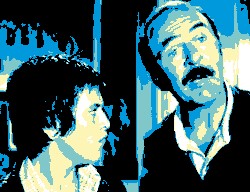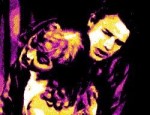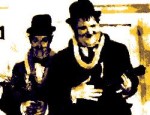Film Review

It's not as if the film doesn't have a great cast. Calmos comes complete with one of the most remarkable ensembles of acting talent Blier was able to hire, with comedy heavyweights Jean-Pierre Marielle and Jean Rochefort leading the most fulsome rebellion against belligerent feminism. Marielle and Rochefort's is a comedy double act made in Heaven, the two actors sparking off each other like oppositely charged electrodes that have been wired up to the National Grid. Their scenes with Bernard Blier, the director's illustrious father, here supremely well-cast as a bon vivant priest, are by far the most enjoyable the film has to offer. The sequence in which these three acting giants chastise an adolescent for giving into carnal desires is hilarious, just one of the weird Buñuellian digressions the film has to offer. Brigitte Fossey is chosen by Blier to personify the dominant female - utterly desirable and yet also scarily intimidating as the ball buster from Hell. What could be more disturbing for the male psyche? - an object of desire turned insatiable sexual predator. Who would have thought that the same actress, looking scarily relaxed in her nude scenes, had once been known for her portrayal of perfect innocence, as the sweet little orphan girl in René Clément's Jeux interdits?
Although the film begins well, with one outrageous comedy set-piece segueing beautifully into the next, by the mid-point Blier's self-discipline and imagination have all but deserted him and total anarchy breaks out. A drawn-out, full-frontal tussle between the sexes involving a tank rambling over the French countryside feels like something that has been lifted from an inferior comedy, and things do not improve as Blier strays awkwardly into sci-fi territory. The penultimate sequence in which the male protagonists are literally reduced to sex machines on a production line serving the needs of now fully independent women ought to be funny but it isn't - it's just a crude gag that is extended way beyond the bounds of reason, let alone decency.
The vulgarity quotient is then raised a notch or two further for the film's grand finale, which looks like something the Monty Python team may have dreamed up on a bad day. With its far from subtle Freudian symbolism, there are some easy schoolboy smirks to be extracted from the final sequence, in which the protagonists, now shrivelled up, wrinkled Lilliputians, stray into the interior sexual organs of a woman, but is this really what we expected from Blier? Calmos is a true one-off, one of those unfortunate, misunderstood films that manages to be both brilliant and awful. As a counter to the feminist onslaught of the 1970s it is pretty feeble, but as an expression of male insecurity in an era of burgeoning female emancipation it is both timely and revealing, and perhaps also darkly prescient...
© James Travers 2014
The above content is owned by frenchfilms.org and must not be copied.
Film Synopsis
Paul Dufour is a middle-aged doctor whose wife's conjugal demands on him are beginning to get him down. One day he meets another man, Albert, who is in the same predicament. On impulse, the two men take a train to a remote village, where they hope to settle down and enjoy a more peaceful mode of existence, far from the incessant demands of women. When their wives show up unexpectedly the two men take flight and head for open countryside, where they are joined by hundreds of other men who are doing exactly the same thing. The ragtag band of weary males is no match for the army of organised females that suddenly appears from nowhere. As the women make their charge, the men scatter in a wild panic. Paul and Albert are captured, and the next thing they know they are in some kind of fertilisation clinic, their sole function being to inseminate a never-ending line of sexually dominant women. Their worst nightmare has become a terrible reality...© James Travers
The above content is owned by frenchfilms.org and must not be copied.
Similar Films
Here are some other films you may enjoy watching:- The Wrong Box (1966)
- Chaussette surprise (1978)
- Que les gros salaires lèvent le doigt! (1982)
- Les Novices (1970)
- Les Aventures de Rabbi Jacob (1973)
Other related links:
Film Credits
- Director: Bertrand Blier
- Script: Bertrand Blier, Philippe Dumarçay
- Cinematographer: Claude Renoir
- Music: Georges Delerue
- Cast: Jean-Pierre Marielle (Paul Dufour), Jean Rochefort (Albert), Bernard Blier (Le curé), Brigitte Fossey (Suzanne Dufour), Claude Piéplu (L'ancien combattant), Pierre Bertin (Le chanoine), Michel Peyrelon (Le P.D.G.), Dora Doll (L'adjudante), Micheline Kahn (Geneviève), Jacques Rispal (L'assassin), Jacques Denis (Un maquisard), Sylvie Joly (La médecin chef), Claudine Beccarie (La cliente cossue), Gérard Jugnot (Un suiveur)
- Country: France
- Language: French
- Support: Color (Eastmancolor)
- Runtime: 81 min
The best of American cinema

The very best American film comedies

Kafka's tortuous trial of love
